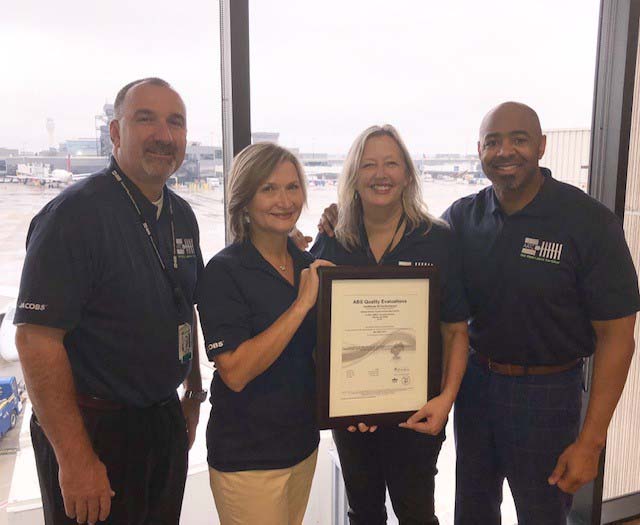Kofi Smith (BIE 1999, MBA 09) is a born leader, which he has demonstrated both on the football field and off. He leads by example, using his “industrial engineering brain” to continuously optimize situations and create winning teams.
A high school football star from Florence, Alabama, Smith was recruited as a defensive back for the Yellow Jackets and enrolled in the H. Milton Stewart School of Industrial and Systems Engineering (ISyE), where he was as committed to academic success as he was on the field. As graduation neared, he hoped professional football would be in his future. But an injury ended his NFL dreams, and Smith shifted his focus back to industrial engineering and corporate America.
His first job was in manufacturing with Milliken & Company.
“The very first question my plant manager asked me was, ‘Do you want to sit behind a desk and do time analysis and cost studies, or do you want to go out onto the manufacturing floor and manage a team?’ I chose the team,” Smith recalled. “He said, ‘Great. I’m going to give you the worst team, C-shift, and you’ll either sink or swim.’”
Smith was ready for the challenge.
“As a kid, you don’t always realize the value of the lessons you are learning. You just want to win,” Smith explained. “[Then-football] Coach O’Leary was hard on us, but it wasn’t until after I left Georgia Tech that I understood that this man had implanted some things within our DNA. Once I hit corporate America, it came out. Come in early. Stay late. Outwork everybody. Make no excuses. Figure out how to win. Align your team to attack a common goal. If someone is in the wrong position, put them in the right one. So that’s what I did.”
And it worked. He combined this philosophy with the education he received at ISyE and began to see success.
“Within six months, that team and I became No. 1,” Smith said with a smile. “We broke records and set new ones, and everybody was chasing us.”
Smith used the same philosophy to maximize efficiencies and lead teams in numerous industries and companies, and as he climbed the corporate ladder, the size of his teams grew. He continued to use his training as an industrial engineer to optimize processes, look at how facilities were laid out, and understand the advantages and disadvantages of making different choices. He also earned an MBA in global business to better understand strategy, finance, operations, and other business topics that further strengthened his decision-making abilities.
Eventually, Smith’s career led him to the airline industry and managing facilities for Delta Airlines. Because of his unique approach, he was noticed by senior leadership at the Atlanta Airlines Terminal Company (AATC), the facility management company for Hartsfield- Jackson Atlanta International Airport (ATL). In 2010, Smith joined AATC as the youngest president and CEO in the history of the company. His organization is responsible for managing 7.2 million square feet of terminal facilities at the world’s busiest airport.
Smith’s combination of leadership skills, business acumen, and industrial engineering expertise have given him the tools necessary to manage a $119 million yearly operating budget and lead AATC. He has also seen more than $646 million in capital improvement contracts executed for the facility since he joined the company. Smith’s IE brain not only serves him in the area of organizational improvements but also in the area of continuous self-improvement. In May of 2018, Smith graduated with his doctorate in business from Georgia State University. In August of that same year, he was recognized by the Atlanta Business Chronicle as one of Atlanta’s Most Admired CEOs.
“IEs can go into any type of environment and assess the situation, break it down in our minds, see all of the individual processes that are happening, and then optimize each of them,” Smith said. “As a CEO, I look at the various departments — finance, engineering, IT, procurement, human resources, operations, and asset sustainability — and figure out how to optimize them to create value for my shareholders.”
An estimated 106 million passengers will pass through ATL in 2019, and a new $6 billion capital improvement plan for the airport is underway. And during it all, Smith and his team will work hard to make sure that the facilities are running as efficiently as possible.
“I love leading teams, defining the win, and then achieving that win,” Smith said. And he’s continuing to do just that.

